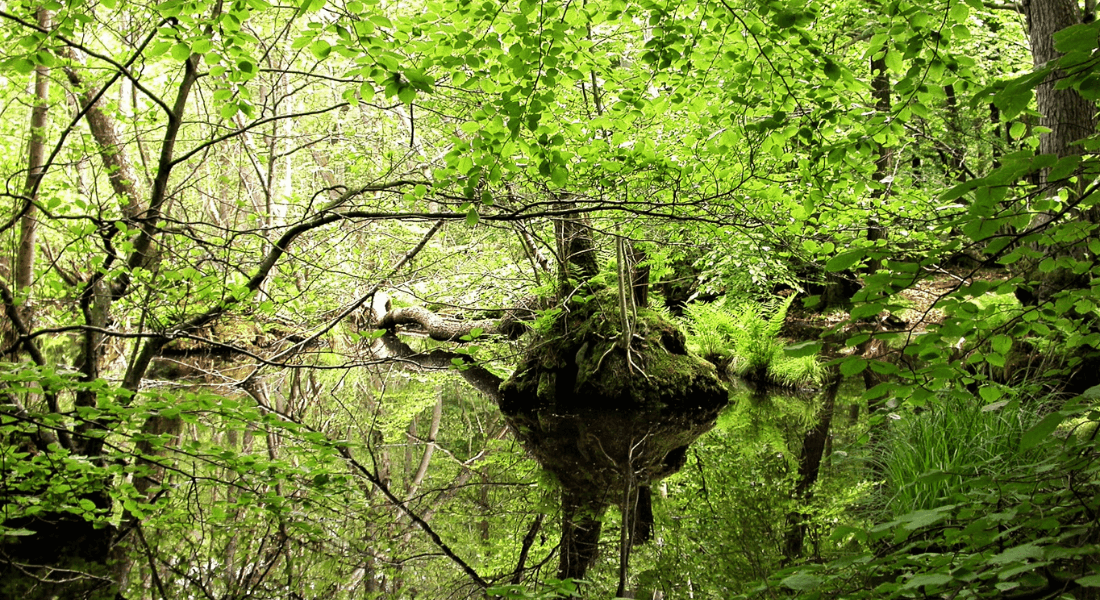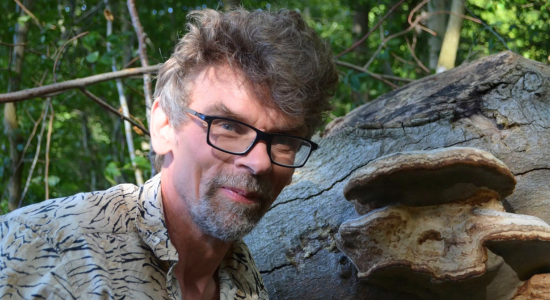Jacob Heilmann-Clausen
Associate Professor
Danish Nature

About Danish Nature
With its fertile soils, Denmark is one of the most heavily cultivated countries in the world, but yet supporting rich natural habitats and associated biodiversity. New national conservation initiatives seek to halt biodiversity loss, but pressures from land use, global change and infrastructure projects represent a continuous challenge. We actively engage in identifying society relevant solutions by case-specific basal and applied research, as well as by engagement in citizen science and public engagement.
Our overall approach
By combining field research, socioeconomic studies, and systematic conservation tools we explore how conservation works in real settings, and use this knowledge to provide evidence based advisory with impact on Danish nature policy. More specifically, we focus on:
-
Restoration of biodiversity and natural ecosystem functioning in degraded habitats
-
Optimal selection of areas to halt biodiversity loss and provide nature based solutions in a green transition
-
Wildlife, biodiversity, and health with a focus on vector-borne diseases
-
The socio-economics of nature conservation with a focus on ecosystem services and willingness to pay
-
Outreach and development of teaching materials based on the full research portfolio of CMEC
- Citizen science as a tool to engage the broader public in biodiversity research and conservation
Research projects
Find information about some of our current and previous research projects within the theme of Danish Nature below
Conservation science, including habitat and species management, is a broad biological discipline that covers all aspects of understanding how species, habitats and ecosystem services are changing in a world increasingly dominated by humans. Some of the current and previous CMEC projects within the theme are described below.
NaturMål
NaturMål ("NatureGoals") is a cross-institutional project set to create a foundation for establishing common targets and evidence based nature conservation in Denmark.
The overall goal is to develop concrete recommendations for target management and effect assessment in Danish nature projects based on case studies and state-of-the-art research through the development of a new professional paradigm for creating targets for dynamic nature; optimize methods and develop standards for effect assessments; and disseminate knowledge through science communication and education.
The project is established in a collaboration between researchers at University of Copenhagen and Aarhus University from 2024-2028 supported by 15. Juni Fonden and Aage V. Jensen Naturfond.
Read more about the project (in Danish)
Contact
Associate Professor Jacob Heilmann-Clausen
Academic Staff Siri Haugum
Measures to promote biodiversity in managed forests
Project for the Ministry of Environment in Denmark (Miljøministeriet) involving the development of inspirational guides and courses providing practical advice on the improvement of biodiversity in managed forests. Find the five inspirational guides in Danish or English under "Other publications" on the CMEC webpage "Reports and publications".
Contact
Associate Professor Jacob Heilmann-Clausen
SUPERB
“Systemic solutions for upscaling of urgent ecosystem restoration for forest-related biodiversity and ecosystem services” (SUPERB) is a four-year project to promote forest restoration and adaptation across Europe conducted by a consortium of 36 science and practice partners from all over Europe, and led by European Forest Institute.
Contact
Associate Professor Thomas Lundhede
Tracking Golden Eagles
In this project, we have been contributing in the tracking of golden eagles with GPS technology to understand their movement patterns and habitat requirements. The technology provides the possibility to explore their habitat use and home ranges across the annual cycle. The project also helps to determine the source population to the Danish breeding birds and investigate genetic relationship within the Danish population.
Read more about the the project
Contact
Deputy Museum Director Anders P. Tøttrup
Management and biodiversity in Danish beech forests
We combine experimental approaches to create deadwood and veteran trees with investigations of existing mature beech stands to understand the links between management, habitat diversity and biodiversity in Danish beech forests. The project has a multi-taxa approach (fungi, lichens, bryophytes, vascular plants, insects, birds), and include economic valuation with the aim to develop cost-effective evidence-based management tools for forest biodiversity.
Contact
Associate Professor Jacob Heilmann-Clausen
Professor Carsten Rahbek
The Danish wolf
We have studied how and why the wolf population is growing and spreading across Europe. Based on this knowledge and data on population and occurrences, we have been a part of developing models to predict wolf dispersal and the number of wolves we can expect in each part of Europe, including Denmark.
Read more about the project (in Danish)
Contact
Professor Carsten Rahbek
Conserving biodiversity in Danish forests
This project shed light on which forest areas in Denmark should be given priority in a cost-effective effort for the conservation of biodiversity in the Danish forests. It also examined what such efforts would cost, and what it might mean for the provision of other ecosystem services from the forests.
Download the final report (in Danish)
Contact
Professor Carsten Rahbek
Special Consultant Anders Højgård Petersen
RESONATE
While the threats caused by climate change are beginning to be well-known amongst stakeholders concerned with forests and even the general public, the need to increase the resilience of our forests and especially the value chains depending on them has gained less attention. Therefore, both proper advice and related tools for forest owners and managers, policy makers and the wood-based industry are lacking. That gap of knowledge is addressed with RESONATE, a Horizon2020 project funded by the European Commission. Read more.
Contact
Professor Jette Bredahl Jacobsen
Citizen Science is scientific research conducted, completely or in part, by citizens without prior training or expert skills. Citizen science projects and public engagement activities involving CMEC are described below.
The economic value of recreational hunting in Denmark
Project for The Danish Environmental Protection Agency (Miljøstyrelsen) examining the economic value of recreational hunting in Denmark with a special focus on hunting leases and hunting management of red deer and fallow deer. Data is collected from 20,000 hunting license holders in Denmark.
Contact
Associate Professor Thomas Lundhede
Professor Bo Jellesmark Thorsen
National study on outdoor recreation in Denmark
A project involving PPGIS data collected from 50,000 respondents on a national scale over the course of 12 months to account for seasonality. Applying travel cost methodology, the study will examine patterns in site selection for nature visitors in Denmark and analyze how sociodemographic factors affect motivation for and constraints to engagement in outdoor recreation.
Contact
Associate Professor Thomas Lundhede
Biodiversitet .nu (NaturTjek)
We worked on the development of a set of biodiversity indicators to track changes in biodiversity over time across Denmark. Data were collected by citizens without prior training or expert skills. The project ended in 2020.
Read more about Biodiversitet.nu (in Danish)
Contact
Professor Carsten Rahbek
Deputy Museum Director Anders P. Tøttrup
Danish Fungi Atlas (Dansk Svampeatlas)
The project builds upon the atlas project "Danmarks Svampeatlas" through which Danish fungi species, focusing on basidiomycetes, have been mapped over the course of a five-year period from 2009 to 2013.
Read more about The Danish Fungi Atlas (in Danish)
Contact
Associate Professor Jacob Heilmann-Clausen
The Insectmobile (Insektmobilen)
We investigated the biodiversity of flying insects in Denmark during the Summer of 2018 and 2019 with more than 150 volunteers collecting insects using large special designed insect nets fitted to car rooftops.
Read more about The Insectmobile (in Danish)
Contact
Deputy Museum Director Anders P. Tøttrup
REAL SCIENCE
The REAL SCIENCE project allowed high school students to become creators of scientific knowledge in close collaboration with real scientists. The students themselves collected water samples and took field notes from their local lake. Subsequently, they analyzed the samples to identify species of fish and amphibians using DNA clues. The scientific purpose of the project was to understand species communities on a national scale and effects of non-biological (e.g. lake temperature and physical environment) that influence species composition.
Read more about REAL SCIENCE (in Danish)
Contact
Deputy Museum Director Anders P. Tøttrup
Professor Carsten Rahbek
Explore the Ocean 2.0 (Opdag Havet 2.0)
"Opdag Havet" was an educational project by which we, in collaboration with WWF Denmark, asked volunteer divers to collect biological knowledge about the sea and marine life in Danish waters. Among other things, we wanted to compare the results to findings done by professional divers and thereby determine if volunteers could be qualified for some of the marine monitoring activities in Denmark.
Read more about Explore the Ocean 2.0 (in Danish)
Contact
Deputy Museum Director Anders P. Tøttrup
Professor Carsten Rahbek
Researchers and staff
SENIOR SCIENTISTS
Carsten Rahbek
Kasper Thorup
Anna-Sofie Stensgaard
Bo Jellesmark Thorsen
Jette Bredahl Jacobsen
Niels Strange
Thomas Lundhede
POSTDOCS
Kerstin Bouma
Katherine Hill
Ovidiu Copot
ACADEMIC STAFF
Anders Højgård Petersen
Jonas Vester Legarth
Siri Vatsø Haugum
Thomas Læssøe
Karsten Elmose Vad
Katrine Minddal
Emma Emilie Andersen
Highlighted papers
Geldmann, J., Heilmann‐Clausen, J., Holm, T. E., Levinsky, I., Markussen, B. O., Olsen, K., ... & Tøttrup, A. P. 2016. "What determines spatial bias in citizen science? Exploring four recording schemes with different proficiency requirements". Diversity and Distributions 22(11). Download.
Lelli, C., Bruun, H. H., Chiarucci, A., Donati, D., Frascaroli, F., Fritz, Ö., ... & Heilmann-Clausen, J. 2019. "Biodiversity response to forest structure and management: Comparing species richness, conservation relevant species and functional diversity as metrics in forest conservation". Forest Ecology and Management 432. Download.
Danish publications
Petersen, A.H., Hasler, B., Laage-Thomsen, T., Termansen, M., Rahbek, C. 2024. Mere, bedre og større natur i Danmark. Hvor, hvordan og hvor meget? Center for Makroøkologi, Evolution og Klima, Globe Institute, Københavns Universitet.
Læssøe, T., Petersen, J.H., Frøslev, T.G., Heilmann-Clausen, J. 2024. Danmarks basidiesvampe. Svampetryk.
Gjerløff, A.K., Vad, K.E. 2021. Hvilken natur? En antologi om natursyn og natur i Danmark. Biologiforbundet.
Heilmann-Clausen, J., Bruun, H.H., Petersen, A.H., Riis-Hansen, R., Rahbek. C. 2020. Forvaltning af biodiversitet i dyrket skov. Center for Makroøkologi, Evolution og Klima, Københavns Universitet.
Heilmann-Clausen, J., Frøslev, T.G., Læssøe, T., Petersen, J.H. 2019. Danmarks Svampeatlas 2009-2013. Svampetryk.
Ejrnæs, R., Johannsen, V.K., Heilmann-Clausen, J. (eds.) 2019. Kortlægning og overvågning af statens udpegninger af urørt skov og anden biodiversitetsskov. Aarhus Universitet, DCE – Nationalt Center for Miljø og Energi, 78 s. Videnskabelig rapport nr. 328.

